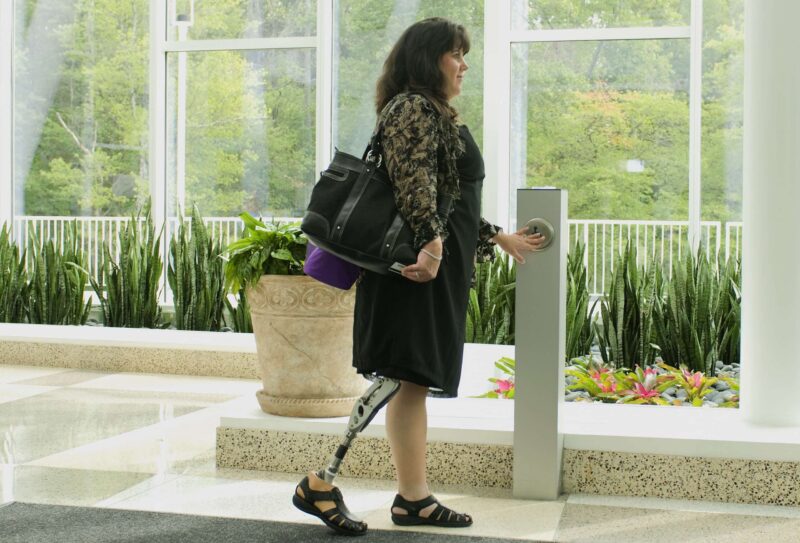What are Disabled Renters’ Rights?
Knowing your rights as a disabled renter is very useful and essential for you to have the most comfortable and enjoyable stay throughout your tenancy contract.
Tenants Contents Insurance from just £3.12
- ✓ Covered up to £30,000
- ✓ Flexible monthly policies
- ✓ No hidden fees
Disabled tenants will have additional legal rights concerning their tenancy agreement, and it’s essential that landlords comply – both from a legal and human aspect. Thus, it is vital to understand the extent of your rights and what you are entitled to if you are renting with a disability.
You should expect fair treatments from landlords
We can first begin by looking at what a landlord cannot do. It is illegal for landlords to discriminate against you on the most fundamental level for any disability you may have. This means that when a landlord is, for instance, considering between two prospective tenants, his choice of the tenant should not be influenced in any way by the absence or in this case rather by the existence of a disability.

The discrimination would further include a landlord refusing to let you keep a guide dog due to a ‘no pets’ rule in the contract, charging you higher rent or deposit rates than other tenants, refusing to let you use facilities such as a laundry room or storage space which will usually be accessible to other tenants, evicting you because of your disability (as opposed to a legitimate reason – e.g. arrears, antisocial behaviour), creating new terms in your tenancy agreement that would not be brought forward to a non-disabled renter.
In other words, you should not be disadvantaged or inconvenienced in any way by your landlord with regard to your tenancy because of a disability.
When looking for a home, private landlords are required to provide you with easy to understand information that is accessible to you and your personal needs, including any forms, paperwork to fill in as well as a tenancy agreement, which will set out the terms of your rent. By law, you can request the required documents from your landlord in easy read, for instance, or another language (e.g. Braille).
Making adjustments when organising the tenancy
In addition to the certain things a landlord cannot do discussed above, the landlord will have to, at times, take proactive steps about your tenancy. This includes making reasonable adjustments to the letting practice and policies that they usually adhere to prevent discrimination and satisfy the tenant’s needs.
This could include sending out letters in Braille, large print, or even visiting tenants with dyslexia in person. The landlord will also be responsible for providing auxiliary aids, which are extra services and equipment that you may require around the property. If, however, you suspect that you are being refused a tenancy so that the landlord can avoid such duties, you are being discriminated against, and can make a legal claim.
Making your new home accessible
Once you move into a property, certain things around the home can be changed, though not everything. The landlord will have to provide new equipment for the home, as long as it doesn’t alter the home’s look and structure forever.
This can include:
- New signs for your home
- A doorbell and door handle which makes getting into your home more accessible
- A mobile ramp or rails to hold on to in your home
- Any additional furnishing you may need around the house (e.g. raised toilet seat, stool in the kitchen)
- Accessible taps around the home, as well as special equipment that could help you access facilities that would be ordinarily available to other tenants (e.g. car park or garden).
Often times however it will be easier and more practical to get equipment rather than make big changes to your home, all of which naturally have to be passed by your landlord for approval (though as mentioned earlier if these are essential, the approval of the landlord is only an official formality), who only on the rarest of circumstances and with great reason will be able to say no to changes.

As it stands, the landlord is not obliged by law to make any big, lasting changes to the building that will last forever, such as: taking walls away, widening doors, or installing an immovable ramp.
Furthermore, the landlord is not bound by law to change any part of a shared residential building such as a block of flats or apartment complex, such as changing the communal garden door.
Getting financial assistance
The physical changes and additions of equipment around a new property can be a financial burden, however, financing change can be less expensive than it seems at face value. Small changes and equipment you may require are usually free if your council or a qualified health person agrees that it is necessary.
Disabled Facilities Grant
If there are more considerable and costly changes to the property, you can seek to get some money from your council to finance the alterations in the form of a ‘Disabled Facilities Grant’.
In England, the grant is capped at £30,000 and can be obtained if you and your landlord have agreed on a tenancy of at least five years, in addition to authorisation from the local council. If you request a grant, the council will provide you with the appropriate forms and process the application within six months.
If, however, your application is unsuccessful you may choose to go down unconventional routes such as writing to your local MP or Councillor for help or requesting more information from the council as to the rejection of your application, and possibly filing a complaint.
Get advice
Suppose there still remain any questions or queries with regard to your rights as a disabled renter. In that case, there are a number of helplines and organisations that actively work to improve the rental experiences of disabled tenants. You can speak to ‘Citizens Advice’, who will advise you on the law and your rights, or you can get in contact with the Equality Advisory Support Service if you feel that a landlord has mistreated you because of your disability.